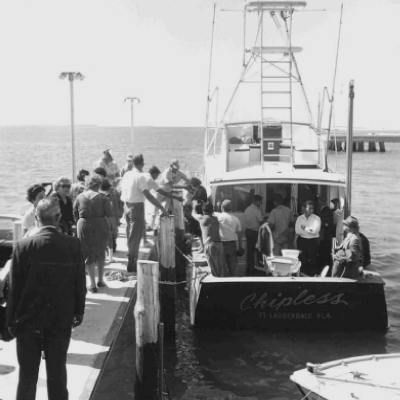
 It was the spring of 1961 in Cuba and the Bay of Pigs invasion had just failed. Jose Borrajero, at the time only 16 years old, and his younger brother would finally have the chance to come to the United States.
It was the spring of 1961 in Cuba and the Bay of Pigs invasion had just failed. Jose Borrajero, at the time only 16 years old, and his younger brother would finally have the chance to come to the United States.
Immediately after the Bay of Pigs, Jose’s dad was taken to a “Cuban concentration camp.” His family’s rental properties were redistributed right away and the Borrajero’s were living through tumultuous times. When the government came to his house to confiscate all firearms all they could fine were BB guns. They took them anyway.
Before Castro took over, Jose said he had a normal and peaceful life. His father a carpenter by trade, also did work with the police department. Jose and his brother went to school and lived a life of relative prosperity and happiness in Cuba.
After Castro took over the government, all education in Cuba became nationalized. Jose said that the education system taught people to read and write with “propaganda.” The government would go out and teach peasants on the farm and suburban areas how to read and write, but all the content used was Marxist. Specifically, Borrajero said they indoctrinated the young by teaching students to spell with sentences like “Yankee go home” and “Castro good.”
This was a way to indoctrinate not only those in high schools, but everyone in Cuba.
They had a “high school holiday” where high schools would go out to suburban areas where people could not read and teach them how to read and write with the socialist propaganda. Jose, one of the few who decided against this, was “marked.” This marking triggered his decision to come to the United States knowing he didn’t have a future under the regime’s tyranny.
Jose commented that at even at the age of 16, he could tell it was a “totalitarian regime” and that something was wrong.
In 1961, the Castro regime was very popular. This was before Castro had implemented total transformation with all sectors later being nationalized in the Marxist/Communist form. That same year, the CIA initiated Operation Peter Pan, in which over 14,000 Cuban children became refugees, after it was rumored that the Castro regime would take custody of children and place them in labor camps.
So that year, Borrajero and his brother boarded a plane in Savanna, Cuba and landed in Miami. Borrajero explained that the children were “unaccompanied,” but a case worker traveled with them. They were assigned a home in New Jersey in which to settle. He said the faith based community and organizations took the lead in settling Cuban migrants. When he left for America everything had already been planned and organized and they vetted Cubans for health, and criminality, and not all were allowed to stay Borrajero says.
In 1967 Jose obtained a Bachelor’s degree in Economics and subsequently served in the U. S Navy for four years. Jose recently retired from a successful Phoenix area business.
He is very active in Arizona politics and is sought out by the media due to his unique perspective. He is a precinct committeeman, a state committeeman, and secretary of his district.
Of the current refugee problem Borrajero says, “What we are doing now is not a conventional refugee program.” He also believes that the current situation occurring with the tens of thousands crossing the Rio Grande Valley may be used to help push for amnesty. Jose an ardent “anti-socialist and anti-communist,” has read the “communist manifesto” and when he hears Obama speak about wealth redistribution he thinks “Karl Marx.”
Borrajero, a man who has escaped communism, isn’t speaking of socialism as a philosophical idea in an Ivory Tower. He lived it.
